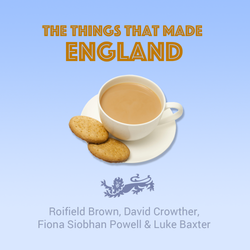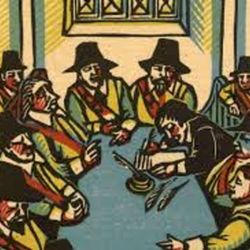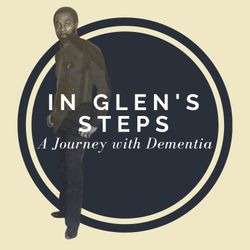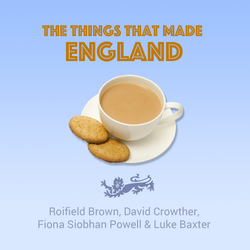The Things That Made England
All Episodes

Birmingham Midweek, Turning Points in English History with David Crowther
55:02|In this lively episode of Birmingham Midweek, host Roifield Brown returns from California to catch up with historian David Crowther, creator of The History of England podcast. The duo embarks on an ambitious journey through English history, aiming to cover turning points from the Battle of Hastings to Brexit, though they start much earlier, around 6000 BCE. Crowther brings his signature wit and depth, proposing the sinking of Doggerland as England’s first turning point, setting the stage for an insular identity.The conversation moves swiftly through history, from the arrival of the Beaker people and the Anglo-Saxon migrations, to Alfred the Great’s resilience in 878 and the seismic shift of the Norman Conquest in 1066. Crowther highlights the establishment of Parliament in the 13th century and the pivotal role of the Magna Carta, while Brown interjects with a mix of sharp questions and local pride (including a plug for Birmingham’s market charter in 1166).The pair push into modernity with the Industrial Revolution, abolition of slavery, and the 19th century’s political reforms, before time runs short. Despite a few playful jabs, the episode strikes a fine balance between education and entertainment, setting up a likely return to tackle the 20th century.Five Notable Quotes:David Crowther: “We are who we believe we are. If there’s someone in Mongolia who considers themselves English, then as far as I’m concerned, they are English.”Roifield Brown: “Aren’t you David first? No, you’ve subsumed yourself. You are just England.”Crowther on 1066: “The Normans didn’t just conquer England, they imposed a colonial lordship that echoes through our countryside ownership even today.”Brown: “We pivoted from looking across the North Sea to looking south. The Normans didn’t just bring castles, they reoriented our entire culture.”Crowther on Cromwell: “Ironically, it’s Cromwell’s legacy that pushes us toward religious toleration. Not the story most people tell.”Further Reading:The History of England PodcastBenedict Anderson’s Imagined CommunitiesInformation on the Putney Debates: British LibraryThe Magna Carta at the National Archives: National ArchivesThe 1832 Great Reform Act: UK ParliamentIf you love a blend of historical insight and sharp banter, this episode delivers, and with a promise of more to come, it’s worth keeping an eye on Birmingham Midweek.
The Levellers
45:44|The Levellers were the first radical political movement of modern history. They developed a full constitution based on wide male suffage, religious toleration and equality in law. They called it 'The Agreement of the People'. In 1649 they were at the very centre of power; where did they come from - and where did they go?
In Glen's Steps: A Journey with Dementia Promo
03:24|In Glen's Steps: A Journey with Dementia is a deeply personal and heartfelt podcast series that explores the impact of dementia on Glenroy Brown, a man of remarkable character, and his family. Through candid conversations, personal reflections, and expert insights, we share the journey of his life, from his early years in Jamaica to his current experiences with dementia. This series offers an intimate look at the challenges, changes, and unexpected joys that come with living with this condition, providing support and understanding to families facing similar challenges.
The Sandwich
47:00|In 1762 John Montague earl of Sandwich ordered an easy to east snack to keep his strength up while gambling - and the word Sandwich was born. Was this one of the things that made England?
Anthony Brown, a Windrush Story.
32:21|Seventy-five years ago, on June 22, 1948, the HMT Empire Windrush docked in Tilbury, marking a pivotal moment in British history. In this episode, we delve into the significance of this landmark event, as we explore one man's journey to prove his British citizenship amidst a hostile environment. Thanks to the dedicated work of journalist Amelia Gentleman, who shed light on the plight of tens of thousands of British West Indians facing wrongful deportation, the Windrush scandal came to the forefront of public consciousnessAmelia Gentleman, a journalist renowned for her tireless efforts, played a crucial role in bringing the Windrush scandal to light. Her in-depth reporting exposed the injustices faced by the Windrush generation, many of whom had lived in Britain for decades, only to find themselves wrongly targeted by deportation measures. By acknowledging Gentleman's sterling work, we pay tribute to her dedication and the impact of her reporting in raising awareness about the systemic mistreatment faced by British West Indians and the urgent need for reform.
David and Roifield answer your questions on UK political history.
01:06:19|David and Roifield answer your questions on British political history. This episode is the last in a five-part miniseries going from The Exclusion Crisis to the vote on Brexit.
UK Party Politics - 1945 to 2019
01:15:52|-1945: The end of World War II and the election of Clement Attlee's Labour Party, which introduced the National Health Service (NHS) and the National Insurance Act.1950: Labour Party loses the general election to the Conservative Party, led by Winston Churchill, who becomes Prime Minister for the second time.1964: The Labour Party, led by Harold Wilson, wins the general election and begins a period of economic and social reform.1970: The Conservative Party, led by Edward Heath, wins the general election, but is unable to form a stable government and calls for a new general election in1974: The Labour Party, led by Harold Wilson, wins the general election, but is unable to form a stable government and calls for a new general election in October.1974: Labour Party led by Harold Wilson wins the general election in October and forms a minority government.1976: The Conservative Party, led by Margaret Thatcher, wins the general election and begins an era of neoliberal economic policies.1979: The Conservative Party, led by Margaret Thatcher, wins the general election, beginning an era of neoliberal economic policies.1997: Tony Blair's Labour Party wins a landslide victory, introducing policies such as the minimum wage and devolution for Scotland and Wales.2010: Conservative Party and Liberal Democrats formed a coalition government2015: Conservative Party led by David Cameron wins the general election, beginning a period of austerity measures and the Brexit referendum.2016: The United Kingdom voted to leave the European Union in a historic referendum.2017: Conservative Party led by Theresa May loses majority in general election, leading to a hung parliament and a minority government.2019: Conservative party led by Boris Johnson wins a majority in general election, resulting in the UK leaving the EU on January 31, 2020.
UK Party Politics - 1906 to 1945
01:07:14|David and Roifield tackle the first half of the 20th century.Labour Representation Committee (1900–1906)Liberal reforms 1906–1914People's Budget (1909)David Lloyd GeorgeFirst Labour government and period in opposition (1923–1929)1926 General Strike
UK Party Politics - Victoriana
59:01|The Great Reform act transformed politics and parties in the UK - and Victoria's reign was the stage for one of the great political rivalries - Gladstone and Disraeli1832: The Reform Act of 1832 expands the electorate, giving more men the right to vote.1867: The Second Reform Act expands the electorate further, giving many working-class men the right to vote.1885: The Liberal Party, led by William Ewart Gladstone, wins a general election.1886: The Irish Home Rule Bill is introduced, but it fails to pass.1892: The Liberal Party, led by Gladstone, wins another general election.1895: The Conservative Party, led by Lord Salisbury, wins a general election.1906: The Liberal Party, led by Sir Henry Campbell-Bannerman, wins a landslide victory in a general election.
loading...